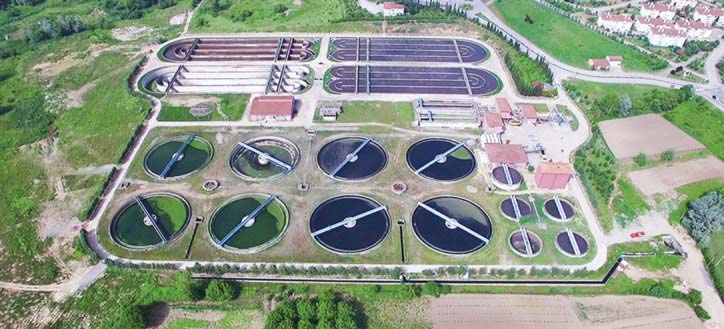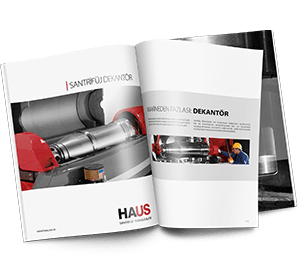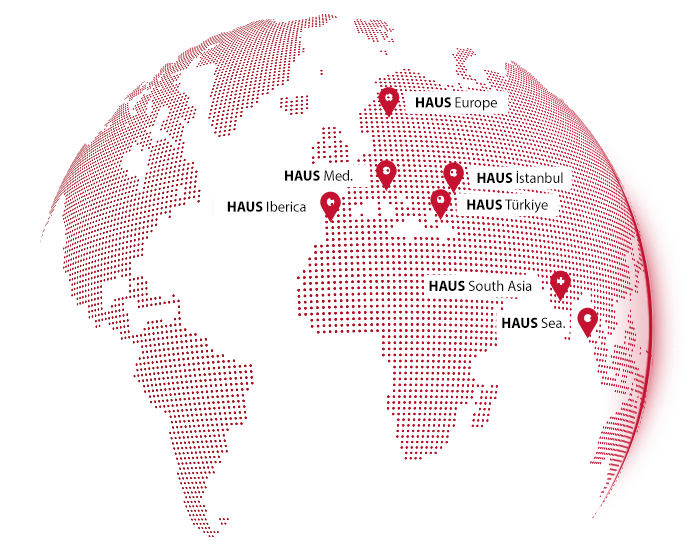Location : Sakarya -/ Turkey
Application : Waste Water Treatment
Operating Machines:
DDE 4732 – Hendek AAT
DDE 3542 – Geyve AAT
DDE 5342 – Karaman AAT
2 Adet 5342 – Karasu AAT
DDE 4732 - Akyazı AAT
Interviewee : Dr. Rüstem KELEŞ (SASKİ General Director)
Interviewer : Evren EKŞİ

Can you give us some information about your company?
I am Rüstem KELEŞ, the General Director of SASKİ. I am a Mechanical Engineer. I worked as a lecturer for fourteen years at Sakarya University previously. Since 2015, I have been working at Sakarya Water and Severage Administration. I am the third general director of the institution. SASKİ was established in 2001 under the name of Adapazarı Water and Severage Administration (ADASU) to carry out water and severage services of Sakarya Metropolitan Municipality, to open new plants, to take over the existing ones and to operate on one hand. Sakarya Metropolitan has an exception: You know municipalities with a population of over a certain rate were turned into metropolitans in accordance with the İSKİ law number 2560. But, after the earthquake in 1999, as the sub and upper structures were affected extremely badly, not regarding its population, Sakarya was decided to become a metropolitan by the government that time so that it could have a quick recovery. ADASU was established after that. Then it was changed into Sakarya Metropolitan Municipality. We currently have 1100 employees. We serve a population of nearly 1 milllion. We have around 450.000 hectare service area. Our region is the one which is dynamic in social, economic, populational and industrial aspects and which has a fast pace of development. Being in close location to İstanbul makes it active. That forces us to develop a broad perspective for the future. At present, we have three organized industrial sites and this number will rise to ten very soon. But, according to our general policy, we resist for clean industry. BMC, one of the biggest industrial investments of Turkey, is coming to our region. That means nearly 10.000 employees. It also means a population of 50.000 and the development of subsidiary industry. So, what I want to say is, as Sakarya is located in an earthquake-prone area, it is a kind of place which needs to develop horizantally and which needs advanced analyses for substructure and through these analyses which needs to have wastewater, drinking water and rain water administration objectives for the substructure. That is why, we have been making big plans since 2005. We even did research on clean energy and renewable energy by going beyond the ordinary water and severage administration mentality. In this aspect, we are the first. We carried out a 9.6 MW hydroelectric plant project for the first time in the country. This investment of ours served many local administrations as a model. We are an assertive organization in Turkey for both drinking water and wastewater parameters. That is, drinking water in Sakarya is definitely much better and of better quality than packaged water. So our people can drink tap water with peace of mind. And we try hard to make it sustainable. We try to push the limits and be out of ordinary. We work for what is needed to be a modern organization. For example, we, as SASKİ, have industry 4.0 strategic studies. Our foremost awareness as SASKİ is our being on the side of water.
How did you meet HAUS?
We follow sectoral improvements both in and out of the country. We attend important organizations and foreign fairs. We have a history of nearly 25-30 years for environmental technologies. The western world has more than 100 years’ history. For example, Moscow Sewage Treatment Plant started functioning in the 1950s. In America, on the other hand, they have drinking water treatment plants which date back to 1915 and 1920. Now I want to mention something interesting about the topic. In the past, here, on these lands in Adapazarı, there was an Ottoman citizen of Greek origin. He was a craftsman, “çarıklı” for its Anatolian expression, with higly developed natural talents. He is said to have built a handwheel for free, which supplied water from Sapanca to Sakarya. It is still standing. He, then, was sent to Cidde by the Ottoman to provide Hicaz region with water. And, for the first time at the beginning of the previous century, a man of this land, who first built treatment plant from the sea, was met. As I said earlier, this plant is still standing. We have the photos of it. Then came world wars, problems… 1980s are the times when Turkey literally met with environmental technologies. After 1990s, a bank was set up for the issue. Serious work has been done since 2000s. In 1996 in Sakarya, the first wastewater treatment plant of Turkey was begun to be built and it was opened in 2000s. All that meant foreign-sourced costly investments for building these plants and buying its technology. So, our organization began a quest that I mentioned. There was a trend towards using more efficient newer technology decanters. After a thorough search, we found and met HAUS. We contacted them. We established trust through face to face conversations. After a demo sending and a test stage, we were satisfied. We visited the factory to also see the manufacturing and we were satisfied in this sense, too. Then we went out to tender. We are the first wastewater treatment plant using HAUS brand decanters.
Where and for what purpose is HAUS used in your company?
We have 6 wastewater treatment plants. Akyazı, Karaman, Hendek, Geyve, Karasu and Kocaali Wastewater Treatment Plants. Also, we will be building other ones in Taraklı and Kaynarca. After these two projects are completed, all our districts will have wastewater treatment plants. We used to have belt filters in our plants. With the guidance of our workmates, we started to use decanters for more effective outcomes. We can make use of them with up to 25% dryness rate.

Why HAUS?
Our first reason to prefer HAUS is because it is a domestic production. In other words, it is a national mission for an investor to choose a domestic company in a very important field like environmental technologies. Secondly, its quality is another conscious choice. It is indeed a successful company in terms of its quality of production and quality of material parameters. It can easily catch the standarts. For operational efficiency in wastewater treatment, material is of great importance because corrosive effects and the feature of wastewater corrodes the material. The feedback from our operators and our workmates shows us that HAUS is extremely efficient in terms of quality parameters. I hope it will be a sustainable situation. Also, the biggest problem we have with the products we buy from in and out of the country is after-sales services. Of course it is a very important factor for our decisions. It is important for both getting the feedbacks and turning them into data. We decide not to prefer that company again if we are having problems with after-sales services. A sustainable, continuous and reliable HAUS service is another factor affecting our decision. It has proved customer satisfaction since the day we started to use it. Both its price policy and production parameters easily meet criteria set by the ministry and European Union. We have been working with HAUS for more than 10 years without having any problems. So, we are guiding both our own and our brother administrations to work with HAUS. That is, we have never bought any services and products HAUS provides us from foreign companies We can easily share this and we can easily give a reference about you.

Is there a final word you want to add?
Last year in Davos, the participants were asked this question: “What are the three most important problems that the world is facing today?” And one of the problems was “water and environment”. So it is more critical for Turkey as our rivers and lakes are becoming polluted and we are losing them. For this reason, investors like us should be forced and kept under control. And the companies like HAUS should analyse the sector very well, determine the plants’ needs, receive the feedbacks and most importantly carry out necessary R&D work to be ready for the future. We should have domestic companies which can meet requirements and demands so that capital and knowledge stay here, in our country.








